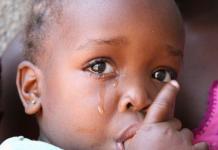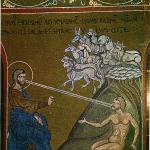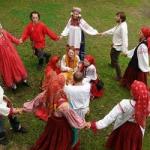Russian politician.
Alexander Aleksandrovich Shchelkanov (born August 5, 1939, Leningrad) is a Russian politician.
People's Deputy of the USSR (1989-1991). Chairman of the Lensovet Executive Committee (1990-1991). Deputy of the Legislative Assembly of St. Petersburg (1994-2002).
Born into a shipbuilding family
lei: father - shipbuilding engineer, died during the Great Patriotic War; mother, a shipbuilding technician, died in 1992.
Graduated from the Leningrad Shipbuilding Institute (1963), the Moscow Military Institute of Translators (1977), and the North-Western Academy of Public Administration (1994).
Served in the Navy, retired with the rank of captain 1st rank.
While receiving a military pension, he worked at a factory as a plastics presser and tool maker, then as a loader.
In 1989, in repeated elections with the support of the “Elections-89” committee, he was elected People’s Deputy of the USSR from the territorial
o district 51 (Kirovsky district).
Member of the Interregional Deputy Group. In 1989 he left the CPSU.
In 1989-1990 he worked on a permanent basis in the committee of the Supreme Soviet of the USSR.
In August-December 1991 - member of the Supreme Soviet of the USSR, chairman of the Committee on Armed Forces Affairs.
In 1990, elected
an chairman of the executive committee of the Leningrad City Council.
In 1991, he resigned due to the abolition of the post and the election of the mayor of Leningrad.
He led the independent public non-profit “St. Petersburg Mission for Alternative Proposals.”
Elected as a deputy of the Legislative Assembly of St. Pete
Erburg as an independent candidate:
1994 - defeated Federation Council deputy Alexander Belyaev in the second round.
1998 - in the second round.
Did not participate in the 2002 elections.
Was not a member of the faction.
In November 2000, he ran for the post of Commissioner for Human Rights of St. Petersburg (formerly
The previous post showed that even many from St. Petersburg did not immediately remember Alexander Shchelkanov. We have an amazing ability to pay attention to imaginary magnitudes. They knew about Shchelkanov that he was honest. Therefore, it never occurred to anyone to “approach” him with “leftist” proposals. They knew that nothing would come of it. Unfortunately, this type of honest politician is now an endangered species in our country. Therefore, it’s just nice to remember this person. Here are some publications with him:
Alexander SHCHELKANOV: “Most citizens cannot admit that they were fooled in 2000”
People's Deputy of the USSR in 1989-92, Chairman of the Leningrad City Executive Committee in 1990-91, and then (in 1994-2002) Deputy of the Legislative Assembly Alexander Shchelkanov has been living in Valdai for the last six and a half years, visiting St. Petersburg once a year (usually in spring). And then there was an unscheduled visit in the fall - which it was a sin not to take advantage of in order to meet with Alexander Alexandrovich. After all, it’s interesting what one of those who twenty years ago became a symbol of democratic change thinks about today.
I take the blame
— Alexander Alexandrovich, for a whole year you were the second person in the city. It is clear to the naked eye that the behavior of the authorities in relations with citizens then and now is strikingly different. Why?
— Because we have returned back to what it was before 1989, and today the Soviet, communist state is being restored in full swing in the country and city.
- The same thing that everyone was tired of twenty years ago and wanted to give up forever?
— By 1989, society was at the peak of intolerance towards the Soviet communist method of existence. We, managers of the nineties, when there was the most favorable environment and the highest potential of people's readiness to transform society, turned out to be incapable of realizing it and even helped to squander it. I accept part of the blame for this.
— Why are you talking about transformation, and not about modernization, as is usually done?
— Modernization is improvement, and there was nothing to improve in that society. It could only be remade.
- What exactly did you fail?
— Involve the majority of society in the transformation process. Moreover, we - starting with Boris Nikolayevich Yeltsin - moved away from people whose eyes sparkled and who wanted to do something. They had to be told what we were doing, why we were doing it, and who exactly was responsible for it. It was necessary to get in direct contact with the people who were to carry out this transformation. Yeltsin did not want to, declaring: I will not restore Soviet agitprop. And the crack between the government and society began to grow: the government does what it considers necessary, but does not consider it necessary to explain it to people.
— Those who came then were believed at first, like no one before. And then they stopped. Why?
“Then there was a glimmer of blue sky and sun through the clouds: the general opinion was that our people had come to power!” We voted for them - and they came! The period of waiting and trust was very deep. People have long believed that the government they elected would change something in their lives. But life cannot be changed in a year or two. And trust began to decline. Already by 1995-1996, dissatisfaction with Yeltsin and opposition to him had formed, and by 1999 it reached its peak. And this was an extremely convenient moment for new people to come to power, who speak a semi-criminal language, both with the world and with Russia...
Delayed bug fixes
— Twenty years ago there was mass enthusiasm: everyone wanted change. But when in the mid-90s everything went in the opposite direction, the majority met this with growing indifference. And today the majority does not go to the polls, believing that they will be deceived anyway, and does not try to change anything, believing that nothing depends on them.
— We must take into account the division of society by social strata. Firstly, we have a serious layer of wealthy people. Secondly, national patriotism has developed strongly in our country: many people adore the authorities because they supposedly “restored respect for Russia.”
- What does this respect consist of?
“When you start discussing with such people what the government has restored, it turns out that in fact it is not respect, but fear. That Russia is again feared and, as they say, “respected”...
Third layer: bureaucracy and those who strive to become one. Today it is openly demonstrated to everyone that if you get into power, you rise above society and become the “elite”. And more and more young people are thinking: how can I get there! In the 90s there were no such sentiments: on the contrary, bureaucracy was considered unprestigious. And now a whole layer of people has formed who are ready to do anything for access to power.
Finally, the fourth layer: the disillusioned. Those who believed in the new government in the early 90s, and then became disillusioned with it. I saw theft, corruption, kickbacks, privileges... And all these four layers weigh more than those who are concerned about the failure of the transformation that began in the last decade.
“A huge number of people live poorly and, whenever they approach an official, they receive a dose of humiliation, making sure that the authorities do not value their opinion at all, and yet they still go out in formation to vote for it. What makes them do this?
— After the Great Patriotic War, people lived even worse, but they prayed for Joseph Vissarionovich. Why? But because he, my own father, does not know what these officials, bastards, are doing to us! The mentality remains the same: Vladimir Vladimirovich, my dear, doesn’t know what’s going on in the country, he’s being deceived, set up... But as soon as he personally intervenes - like in Pikalevo - and everything gets better.
“Yeltsin also signed decrees on the allocation of money on the plane, but it didn’t help.
- Why didn’t it help? In 1996 it even helped a lot. But he could not do this all the time: the economic situation was fundamentally different. And the possibilities for realizing promises are fundamentally different from those of Putin. Vladimir Vladimirovich, while oil was expensive, could raise pensions and announce “national projects.” So the government enjoys support - why not support it if everything is more or less successful?
How long will this support last? Oil is getting cheaper...
“It’s human nature to make mistakes, but in Russia it’s very common for us not to admit our mistakes.” And the majority cannot admit to themselves that in 2000 they were simply fooled by the proposal of such a president. Then, against the backdrop of Yeltsin, they happily accepted him, but now they don’t have the courage to say to themselves: the king has no clothes! It’s better to die in what we have, but not admit that we were duped... And two more important circumstances that stabilize the current state and reduce the likelihood of discontent and disagreement: the creation of the image of an external enemy and the all-out attack of the Russian Orthodox Church on the state.
Riot police are just flowers
— The external enemy is, as always, the United States? But now we have “enemies all around”: Georgia, Ukraine, Estonia, Poland...
- Mostly the USA. And creating the image of an enemy in the face of America gives many people the impression that we are “raising our heads,” “getting up from our knees,” and so on. We need to raise the economy, but we are raising our heads... Several years ago, when I looked at Putin, I had the complete impression that the enemy had already surrounded us, that he already wanted to break us, and therefore we had to frown sternly. And then friendly relations are being established with totalitarian countries - North Korea, China, Venezuela.
— And what does the church do to strengthen the current regime?
— By turning with the support of the state (which, according to the Constitution, is secular) into a state church, the Russian Orthodox Church promotes silence, submission and conciliation. Because, “without fear of sin, the cockerel praises the cuckoo” (I insist on this edition). Kukukh constantly says what a big role the church plays in establishing the state, its unity and strengthening, and the cockerel for this at all possible levels, through all the media, tells the entire population how good the current government is, how much it does for people, for Russia... And this cannot pass by either the ears or the subcortex - and leads to humility not in the theological content, but in the one we are talking about.
— Having left power, do you follow the mood in St. Petersburg?
- They are more and more peaceful. The handful of those who understand the futility of what is happening in the state management system for Russia is becoming smaller and smaller; they are turning into a group of social outcasts. At one time I was labeled as a city madman with my desire to defend the rights of citizens. And in the last two or three years, all human rights activists have begun to be called almost enemies of the people, living on Western money. Protests do not meet with mass support from citizens: the number of active people is decreasing.
— Why be surprised if at protest rallies (this was impossible to imagine at the time when you were at the head of the Leningrad City Executive Committee, and in subsequent years) citizens are met by riot police and police batons?
— And also bans on holding protests in places that are convenient and accessible to people. Riot police are just a little flower, recently one of the Deputy Ministers of Internal Affairs said that they are restoring the SOBR! This is after a wave of dissatisfaction with salary delays and layoffs swept across the country, and the authorities had a justified fear of citizens becoming more active.
— Can you compare the behavior of the St. Petersburg authorities in your time and now?
— The main thing I see is lordship and inaccessibility. No feedback. The governor does not meet with citizens, does not receive them - she only receives leaders of large businesses and so on. But for the people whose taxes support power, there is no access to it. But if citizens do not have access to power, there is no mechanism of democracy, which is enshrined in the Constitution. And there is an imitation of this democracy: everything is being done to convince Europe and the world community that we have changed, that we have everything as it should be, here in St. Petersburg we even have a “model human rights activist” - the Commissioner for Human Rights, Mr. Mikhailov, well remembered by me from his parliamentary activities...
— What should those who are not satisfied with all this do? Leave the country? Go into internal emigration? Give up on everything?
“This question has been tormenting me all these last years. I think that each of us needs to clearly formulate: what does not suit us today? And not just to formulate dogmas, but to show concrete examples of violations of citizens’ rights. And then present to society an alternative to the actions of the authorities - so that people begin to think. The way they began to think twenty years ago, when they realized that “we can’t live like this any longer.”
Interviewed Boris VISHNEVSKY
Photo INTERPRESS
Hero of not our time
Yesterday Alexander Shchelkanov turned 70 years old
There are no such people.
We have long learned that officials are people who enjoy gigantic benefits, drive official cars, use their official position to enrich themselves, hold on to their chair until the last, and when they have to leave, they plan on profitable “alternate airfields” and live like that , as ordinary citizens never dreamed of.
So, we will assume that you are reading a fairy tale.
A fairy tale about Alexander Shchelkanov, who categorically does not fit into these ideas.
For the first time they learned about Shchelkanov in Leningrad in May 1989, when a loader from store No. 20 of the Leningrad trading company “Berezka” (having retired, captain of the first rank and military pensioner Shchelkanov worked at the plant as a plastics press operator and a tool maker, and then as a loader) won elections of people's deputies of the USSR from the head of the Baltic Shipping Company Viktor Kharchenko.
The first attempt at elections in the Kirov territorial district No. 51 ended in failure - none of the two candidates who ran were able to get more than 50% of the votes, and repeat elections were called. Shchelkanov decided to propose his candidacy at them - and with the support of the Elections-89 committee, he won. At the Congress of People's Deputies, he joined the Interregional Deputy Group and quickly gained popularity among Leningraders. And then came the spring of 1990, when the first democratic Lensoviet, having chosen (as it turned out, unfortunately) Anatoly Sobchak as chairman, began looking for the future chairman of the Leningrad City Executive Committee - the “prime minister” of the city government.
The Leningrad City Council took an unconventional route - it announced an open competition for this position, after which a special group led by Mikhail Gorny discussed all the candidates and submitted them to a vote at the Leningrad City Council session. And on June 18, 1990, Shchelkanov was elected chairman of the executive committee, receiving 220 votes.
At the session, of course, the question was asked whether it would be cramped for two bears in one den (that is, for the chairman of the council and the chairman of the executive committee). In response, both Sobchak and Shchelkanov unanimously stated that there was enough space for them, and in general, each of them was ready to make room in favor of the other. Practice, however, quickly showed that if Shchelkanov (who has a pathological lack of what is called the thirst for power) is ready to make room, then Sobchak is categorically not in the mood for this.
Shchelkanov agreed to take his position only on the condition that the Leningrad City Council would trust him and would not interfere with his work every minute. In this position, he did everything he could - and at the same time went to work by metro (St. Petersburg history does not know another such city leader). However, it soon became clear that Anatoly Sobchak did not want to put up with the role of speaker of the city parliament and wanted to lead not the deputies, but the entire city life, considering himself the boss over the executive committee in general and over Shchelkanov in particular. And captain of the first rank Shchelkanov discovered that he was called to the carpet three times a day and declared guilty of ignoring the wise instructions of Professor Sobchak, solely due to the failure of which a separate paradise had not yet arrived in the city on the Neva. At the same time, Sobchak, on the one hand, made decisions over the head of the chairman of the Leningrad City Executive Committee, and on the other hand, blamed him (as well as the deputies, with the majority of whom he also had a falling out) for the difficult situation in the city.
Shchelkanov tried to resign several times (in November 1990, only at a special closed meeting of the Leningrad City Council presidium was Shchelkanov persuaded to stay), and when the post of elected mayor was introduced in the city in April 1991, he refused to run for this position. After the executive committee was reorganized into the mayor's office, Shchelkanov said that he did not want to work with Sobchak in any form. The session of the Leningrad City Council conducted it in an unprecedented way - the deputies gave him a standing ovation.
After resigning, Shchelkanov focused on work in the Supreme Soviet of the USSR, heading the Committee on Armed Forces Affairs. In August 1991, he joined the headquarters for organizing the fight against the consequences of the coup in Leningrad, where he played a significant role. And when neither the Soviet Union nor the Congress of People’s Deputies ceased to exist, Shchelkanov withdrew from politics, creating the non-profit organization “Mission for Alternative Proposals.”
He returned two years later, winning in April 1994 the elections to the City (then Legislative) Assembly in the 17th district against the ex-chairman of the Leningrad City Council, deputy of the Federation Council and leader of the “Democratic Unity of St. Petersburg” bloc Alexander Belyaev. And for eight years he was the only deputy of the Legislative Assembly who was not a member of any commission or faction. He, of course, worked on laws - but mostly he worked in his district, where he was incredibly popular.
At the next elections - in 1998 - the ex-chief of the Central Internal Affairs Directorate, General Anatoly Ponidelko, decided to run against him, but lost. And Shchelkanov did not go to the third election, although it is unlikely that anyone could compete with him: he turned out to be the first and last St. Petersburg parliamentarian who voluntarily abandoned his attempt at re-election. He explained this very simply: he was always against a third term for both the governor and the president, and therefore he could not remain in harmony with his conscience while remaining for a third term. He saw his assistant Galina Vinogradova as his successor, but she failed to win the elections (especially since Shchelkanov could only help with his authority, but not with money or administrative resources), and Vadim Lopatnikov, the current head of the PCB, became a deputy from this district.
For eight years in the Assembly, Shchelkanov convincingly showed that it is useless to put pressure on him (much less intimidate), it is useless to “negotiate” with him, and it is useless to persuade him to use his deputy status to resolve the commercial issues of “good people.” He called everything by its proper name, said everything to his face and did not mince words.
When in 1996 the Legislative Assembly was pushing through a law on postponing the gubernatorial elections to please Sobchak, the opposition disrupted the quorum and the moderator of the meeting, Sergei Mironov, instead of registering, decided to list on the transcript those whom he supposedly “sees in the hall.” Shchelkanov sent him a letter with the words “Disgusting, you know! Without respect - A. Shchelkanov.” When in 1999, deputies from the Boldyrev Bloc, having barely been elected, began to scatter, Shchelkanov said that “these are people for whom there are no principles, for whom the main principle is the principle of satisfying their own interests and who at any moment will surrender any ideologies on which they fell into Meeting". And in general, he spoke about the Legislative Assembly as a body that “never learned or did not want (rather the latter) to take the position of the people’s defender, opposing the governor and defending the primordial interests of the townspeople before him.”
In general, when there was no such black sheep in the city parliament of the third convocation, many - both in the Mariinsky Palace and in Smolny - breathed a sigh of relief. It became much easier to reassure oneself that politics is a dirty business, that one must be flexible, take reality into account, and that for the sake of the interests of the cause one can give up principles a little, it became much easier: there was no longer a refuting example before one’s eyes.
...It has already been seven years since Alexander Shchelkanov lives in a village house in Valdai. He comes to St. Petersburg once a year to collect his pension. He writes many letters to authorities, signing himself “Actual State Councilor of St. Petersburg, 1st class” (the highest rank of the city’s civil service): he fights against the development of country cottages in the Valdai National Park, against the construction of objects around St. Petersburg literally on bones - on battlefields The Great Patriotic War (Novaya has talked about this more than once). She closely follows events in the country and in the city, and is extremely critical of both Valentina Matvienko and Vladimir Putin. And when Dmitry Medvedev was announced as Putin’s successor in December 2007, Shchelkanov sarcastically declared: “Who is Medvedev, that this prince is already offering the current president the position of prime minister with him and this is shown on all TV channels? This is how they make it clear to us that the elections are a farce and that we are being led to them like sheep to the slaughter?”
Truly a hero not of our time.
However, we agreed that this is a fairy tale.
Although everything in it is completely true.
Boris VISHNEVSKY
photo by INTERPRESS and from the Novaya archive
Alexander Shchelkanov was and continues to be one of the most prominent critics of Vladimir Putin. People's Deputy of the USSR, Chairman of the Executive Committee of the Leningrad City Council, Deputy of the Legislative Assembly of St. Petersburg, member of the Interregional Deputy Group left politics in 2002 and moved to the provinces.
According to Shchelkanov, in the late 90s of the last century, Russia had the opportunity to find a worthy successor to the aging Boris Yeltsin. However, the opinion of citizens turned out to be weaker than the influence of the intelligence services.
" Most of all I reproach myself, and I consider the biggest misfortune that we lost to Russia in 89-90. Then we could start. I believe that the peak of people’s readiness for change absolutely could not be missed. Yeltsin, Yeltsin, Yeltsin - I treat him very well. I will explain why: in such a period when there was a personality, a person ready to do what he did, we no longer had anyone. And thanks to him at least for this,” Alexander Shchelkanov begins his story, receiving an NV correspondent in his home.
The patriarchal nature of everyday life encourages leisurely conversation. In the popular print silence of the Valdai Hills, we continue to study the history of the Kremlin government through the fate of its St. Petersburg representatives.
Sobchak in the frame of St. Petersburg
Alexander Shchelkanov: I didn’t have a kinship of souls with him [Anatoly Sobchak]. I was always stressed that I couldn't trust him. I had a feeling that there would be a moment when, after a change in the situation in the country, in power, and so on, he would quite calmly bend in the other direction.
The first time, as you remember, this happened when he spoke out against Yeltsin - back in the days of the putsch with a statement at the Kirov plant. He performed very poorly.
But Putin hasn’t changed at all. He was formed that way. He wasn't bad, a "radish" by any means. And his inner core was waiting: when would a situation arise so that it would become possible to realize what he was raised to be, and begin to restore what made him appear. This is the “Duce from the gateway” [Duce – from lat. dux ("leader, leader") is an Italian title held by Benito Mussolini]. He really wanted to become a Duce. Precisely Putin.
It was more difficult with Sobchak. There was endless back and forth: just look at his dissertations and in general the entire pre-election, “pre-revolutionary” period. He had a search. For myself, I formed his image in such a way that he constantly painted his own portrait in the frame of St. Petersburg. He changed, looked for convenient situations, and at congresses he was an excellent speaker about nothing. And when the situation began to change, he began to advance. And Putin was waiting for the moment.
How could it happen that the speaker, a fighter against the KGB from the podium of the congress, surrounded himself with KGB officers and also took a KGB officer as his first assistant? How?
Or he was absolutely no personnel officer and believed that he would re-educate this boy. Moreover: he hoped that he would learn from the inside what organs were and how to deal with them. We know what happened to this boy. And Sobchak turned out to be a zero personnel officer and teacher.
Second option: He simply needed Putin as a backup in case of a sudden change in the situation: look, I was good. Everything is explained here for me.
Provincial putsch
I was returning from Moscow from a session of the Supreme Council and at the entrance to St. Petersburg, about twenty minutes before the station, I heard about the putsch [August 1991 putsch]. Moreover, I was traveling with one of the old St. Petersburg military poets. And one question arose: either rush to Moscow, or immediately run to Dvortsovaya without going home.
It was clear that in Moscow there would be as many people as wanted to defend and fight. In Moscow there will be constant cries: “I was there.” In general, we need to run here. Without going home, I ran to the Leningrad City Council and was there for three days.
In that team, I dealt with two issues: organizing information from the Assembly and to the Assembly [Lensovet]. You remember that several of our issues were published with a report on what is being done in the Assembly, what is being done in the city.
Whether there were machine guns in the windows of the Headquarters on Dvortsovaya - I don’t know, I wasn’t there. Whether the guys were armed in the square, I don’t know. I walked there a lot, during those two nights I constantly went down to see them and discussed everything together. I didn't see a single armed person.
Remember the balcony in the Legislative Assembly from which we talked to people? Shouts could be heard from below: when will the weapons be distributed? We answered that if there is a need for this, we will warn you, tell you how it will be organized, and so on.
The shouting could also have been to cover people who already had weapons. That is, they were waiting for the official announcement that it had been distributed. And then - go figure it out.
The resistance around the Council, its security and defense were organized, of course, at an amateur-primitive level. And all the barriers, obstacles, barriers that were built on the streets were ridiculous. Therefore, the main task was to calm, reason, and cool. Let people understand that until nothing serious happens in Moscow, no one in St. Petersburg will be the first to dare to start. There is no need to interfere yourself and give a chance to use force to those who carried out this coup.
Internal repression
First of all, here it would be necessary to clearly define the concept of “repression”. And I would like to hear from Vladimir [Putin]: by repression I mean this and that. Then it would be much easier to discuss the issue within the framework.
You touched on the repressions of 1937. But there were repressions in 1953. Excuse me for being funny, but there were repressions at Bolotnaya [Bolotnaya Square in Moscow]. And it is no coincidence that after Bolotnaya, the activity of the confrontation and opposition movement began to noticeably narrow.
Participation in actions like Ukraine, Crimea and Syria is repression of external influence. And do you really think that if we can take such actions, regardless of international law, regardless of the opinion of a handful of opposition in our country, then in our own country we cannot do whatever we want? And no one in the world will pester us about this, it will all be swallowed up.
In Russia, the social situation will worsen, social tension will grow. And then it will be possible to clear ourselves of these elements [of the opposition] using beautiful phrases: how we want to maintain stability and so that a civil war does not start. And then opportunities for the official introduction of repression, even if initially in a limited scope, will appear.
NV: Kremlin, KGB, Crimea, Syria. Putin demonstrates strength everywhere; in the propaganda field he is a leader and they fear him. Actually, did he achieve what he was striving for?
ASCH: I will return to my definition: Duce from the gateway. And the gateway is perennial.
NV: Spanks?
ASCH: Worse! Downtroddenness, disadvantage, accumulated humiliation. You have listed it all. Yes. Just try and give up on this.
NV: Well, somewhere in Mallorca...
ASCH: (laughs) That's how you would do it. But look at those bright people who were in the 89-90s. Have many people fled to nice cottages in Mallorca? Or do they still continue to remain in their positions and defend their now unnecessary ideas?
Someone did not transform, they waited for their time, for their opportunities. And someone remains a normal person. But Putin is not one of those who can remain a man and a citizen. He is already a Duce.
NV: Vladimir Yakovlev [governor of St. Petersburg in 1996-2003], after winning the 1996 elections, called on everyone who worked in Sobchak’s team to cooperate with him. Putin was one of the few who refused, and in a harsh manner . At that moment, did you have the feeling that this person was coming to politics for a long time?
ASCH: Then it caused a huge sense of danger. There was one moment when Putin reported something to the Legislative Assembly instead of Sobchak. A situation arose when the Assembly showed dissatisfaction and began to lean towards the fact that the issue with which he came up with would not pass. He instantly changed: glazed eyes, hard face, voice.
NV: Or maybe this is the very thing that TV channels are telling us about: illness for the country, concern, who, if not me, will replace me? Maybe this is really a mission imposed on him from above?
ASCH: A very good question, “who will replace me.” Here you immediately need to ask, where did you come from? How did you appear there as a result of castling?
The misfortune of Russia, based on the experience of how he organized the power structure with its vertical hierarchy, is that now none of these people want to go to power. Now there is a massive influx of those who know what power is. And of those who can, know and are able (and there are also skilled craftsmen with experience), no one wants to go into power.
This is a speculative game “everything for Russia”, I’ll lie down here, I’ll still work for you guys until I’m eighty, even until I’m a hundred years old, when all this demagogy will go away with the fact that things are getting worse and worse on the ground precisely thanks to this demagoguery and mismanagement, then it will become clear who is who.
Since 1998, Putin has been in power - in one that could do and decide a lot. What exactly has been done? How has our labor productivity increased, how has our GDP per capita increased?
No way!
Present Tense
As mayor of St. Petersburg
Leningrad, Russian SFSR, USSR
non-partisan
,
North-West Personnel Center under the Government of the Russian Federation
Alexander Aleksandrovich Shchelkanov(b. August 5, Leningrad) - Russian politician.
People's Deputy of the USSR (1989-1991). Chairman of the Lensovet Executive Committee (1990-1991). Deputy of the Legislative Assembly of St. Petersburg (1994-2002).
Biography
Born into a family of shipbuilders: his father was a shipbuilding engineer who died during the Great Patriotic War; mother, a shipbuilding technician, died in 1992.
Receiving a military pension, he worked at a factory as a plastics press operator and a tool maker, then as a loader at store No. 20 of the Leningrad trading company “Beryozka”.
There is a son, Alexander.
Political activity
People's Deputy of the USSR
In 1989, in repeated elections with the support of the Elections-89 committee, he was elected people's deputy of the USSR from territorial district 51 (Kirovsky district), ahead of the head of the Baltic Shipping Company Viktor Kharchenko.
In 1989-1990 he worked on a permanent basis in the committee of the Supreme Soviet of the USSR.
In August - December 1991 - member of the Supreme Soviet of the USSR, chairman of the Committee on Armed Forces Affairs.
On June 18, 1990, on an alternative basis, he was elected chairman of the executive committee of the Leningrad City Council - he received 220 votes (out of approximately 370 deputies).
According to the recollections of a number of deputies, this position was not suitable for Shchelkanov. Vladimir Yolkin, who knew him from his work at NPO Uran, where Shchelkanov was a military representative, voted against the appointment, believing that “he was distinguished by accuracy and diligence in implementing other people’s decisions,” and he did not have organizational skills. Oleg Gapanovich recalled that Shchelkanov agreed to take this post, going “literally as if to a slaughter, clearly seeing all the upcoming difficulties, but realizing that someone must shoulder this burden.” According to Gapanovich, Shchelkanov would be more suited to the role of Chairman of the Council, rather than the head of the executive branch; the executive committee was assembled from random people and worked poorly.
From the very beginning of their common work, the relationship between Shchelkanov and the chairman of the Leningrad City Council, Anatoly Sobchak, turned out to be hostile. As Gapanovich recalled, “Sobchak did not miss literally a single occasion so as not to emphasize the incompetence of Shchelkanov’s team.” According to the memoirs of Alexei Kovalev, Shchelkanov, being a gentle person, “eventually... withdrew from the leadership,” after which Sobchak actually became the head of the executive committee through the deputy chairman of the executive committee, Alexei Bolshakov.
On June 12, 1991, Shchelkanov resigned due to the abolition of the post and the election of the mayor of Leningrad. In August 1991, he joined the headquarters for organizing the fight against the consequences of the coup in Leningrad.
Deputy of the Legislative Assembly of St. Petersburg
He led the independent public non-profit organization he created, “Mission for Alternative Proposals”.
Write a review of the article "Shchelkanov, Alexander Alexandrovich"
Links
- Boris Vishnevsky. // “Novaya Gazeta in St. Petersburg”. - August 6-9, 2009
Interview
- // ZakS.ru. - November 13, 2002
- Artemy Smirnov. // weekly "Delo". - December 2, 2002
- Boris Vishnevsky. // “Novaya Gazeta in St. Petersburg.” - October 8-11, 2009
|
||||||||||||||||||||
Excerpt characterizing Shchelkanov, Alexander Alexandrovich
“Yes, they are tenacious on the other side...” they performed a soldier’s dance song. As if echoing them, but in a different kind of fun, the metallic sounds of ringing were interrupted in the heights. And, in yet another kind of fun, the hot rays of the sun poured over the top of the opposite slope. But under the slope, near the cart with the wounded, next to the out of breath horse where Pierre was standing, it was damp, cloudy and sad.The soldier with a swollen cheek looked angrily at the cavalrymen.
- Oh, dandies! – he said reproachfully.
“Today I’ve seen not only soldiers, but also peasants!” The peasants are being driven away too,” said the soldier standing behind the cart with a sad smile, addressing Pierre. - Nowadays they don’t understand... They want to attack all the people, one word - Moscow. They want to do one end. “Despite the vagueness of the soldier’s words, Pierre understood everything he wanted to say and nodded his head approvingly.
The road cleared, and Pierre went downhill and drove on.
Pierre drove along, looking on both sides of the road, looking for familiar faces and everywhere meeting only unfamiliar military faces of different branches of the army, who looked with equal surprise at his white hat and green tailcoat.
Having traveled about four miles, he met his first acquaintance and joyfully addressed him. This acquaintance was one of the leading doctors in the army. He was driving towards Pierre in a chaise, sitting next to a young doctor, and, recognizing Pierre, he stopped his Cossack, who was sitting on the box instead of the coachman.
- Count! Your Excellency, how are you here? - asked the doctor.
- Yes, I wanted to see...
- Yes, yes, there will be something to see...
Pierre got down and stopped talking with the doctor, explaining to him his intention to participate in the battle.
The doctor advised Bezukhov to contact His Serene Highness directly.
“Why, God knows where you are during a battle, in obscurity,” he said, exchanging glances with his young comrade, “but His Serene Highness still knows you and will receive you graciously.” “So, father, do it,” said the doctor.
The doctor seemed tired and in a hurry.
- So you think... And I also wanted to ask you, where is the position? - said Pierre.
- Position? - said the doctor. - This is not my thing. You will pass Tatarinova, there is a lot of digging going on there. There you will enter the mound: you can see from there,” said the doctor.
- And you can see from there?.. If you...
But the doctor interrupted him and moved towards the chaise.
“I would see you off, yes, by God,” here (the doctor pointed to his throat) I gallop to the corps commander. After all, how is it with us?.. You know, Count, tomorrow there is a battle: for a hundred thousand troops, a small number of twenty thousand wounded must be counted; but we have neither stretchers, nor beds, nor paramedics, nor doctors for six thousand. There are ten thousand carts, but other things are needed; do as you wish.
That strange thought that from among those thousands of people alive, healthy, young and old, who looked at his hat with cheerful surprise, there were probably twenty thousand doomed to wounds and death (perhaps the same ones he saw), – Pierre was amazed.
They might die tomorrow, why do they think about anything other than death? And suddenly, through some secret connection of thoughts, he vividly imagined the descent from Mozhaisk Mountain, carts with the wounded, the ringing of bells, the slanting rays of the sun and the song of the cavalrymen.
“Cavalrymen go to battle and meet the wounded, and do not think for a minute about what awaits them, but walk past and wink at the wounded. And out of all these, twenty thousand are doomed to death, and they are surprised at my hat! Strange!" - thought Pierre, heading further to Tatarinova.
At the landowner's house, on the left side of the road, there were carriages, vans, crowds of orderlies and sentries. The brightest stood here. But at the time Pierre arrived, he was not there, and almost no one from the staff was there. Everyone was at the prayer service. Pierre drove forward to Gorki.
Having driven up the mountain and into a small street in the village, Pierre saw for the first time militia men with crosses on their hats and in white shirts, who were loudly talking and laughing, animated and sweaty, working something to the right of the road, on a huge mound overgrown with grass. .
Some of them were digging a mountain with shovels, others were transporting earth on planks in wheelbarrows, and others stood doing nothing.
Two officers stood on the mound, ordering them. Seeing these men, obviously still amused by their new, military situation, Pierre again remembered the wounded soldiers in Mozhaisk, and it became clear to him what the soldier wanted to express when he said that they wanted to attack the whole people. The sight of these bearded men working on the battlefield with their strange clumsy boots, with their sweaty necks and some of their shirts unbuttoned at the slanting collar, from under which the tanned bones of the collarbones were visible, affected Pierre more than anything else he had seen and heard so far. about the solemnity and significance of the present moment.
Pierre got out of the carriage and, past the working militia, ascended the mound from which, as the doctor told him, the battlefield could be seen.
It was about eleven o'clock in the morning. The sun stood somewhat to the left and behind Pierre and brightly illuminated the huge panorama that opened before him through the clear, rare air, like an amphitheater across the rising terrain.
Up and to the left along this amphitheater, cutting it, wound the great Smolensk road, passing through a village with a white church, which lay five hundred steps in front of the mound and below it (this was Borodino). The road crossed under the village across a bridge and, through ups and downs, wound higher and higher to the village of Valuev, visible six miles away (Napoleon was now standing there). Beyond Valuev, the road disappeared into a yellowing forest on the horizon. In this birch and spruce forest, to the right of the direction of the road, the distant cross and bell tower of the Kolotsk Monastery glittered in the sun. All along this blue distance, to the right and left of the forest and the road, in different places one could see smoking fires and indefinite masses of our and enemy troops. To the right, along the flow of the Kolocha and Moskva rivers, the area was gorged and mountainous. Between their gorges the villages of Bezzubovo and Zakharyino could be seen in the distance. To the left, the terrain was more level, there were fields with grain, and one smoking, burnt village could be seen - Semenovskaya.
Everything that Pierre saw to the right and to the left was so vague that neither the left nor the right side of the field completely satisfied his idea. Everywhere there was not the battle that he expected to see, but fields, clearings, troops, forests, smoke from fires, villages, mounds, streams; and no matter how much Pierre tried, he could not find a position in this lively area and could not even distinguish your troops from the enemy.
“We need to ask someone who knows,” he thought and turned to the officer, who was looking with curiosity at his huge non-military figure.
“Let me ask,” Pierre turned to the officer, “what village is ahead?”
- Burdino or what? - said the officer, turning to his comrade with a question.
“Borodino,” the other answered, correcting him.
The officer, apparently pleased with the opportunity to talk, moved towards Pierre.
- Are ours there? asked Pierre.
“Yes, and the French are further away,” said the officer. - There they are, visible.
Born into a family of shipbuilders: his father was a shipbuilding engineer who died during the Great Patriotic War; mother, a shipbuilding technician, died in 1992.
Receiving a military pension, he worked at a factory as a plastics press operator and a tool maker, then as a loader at store No. 20 of the Leningrad trading company “Beryozka”.
There is a son, Alexander.
Political activity
People's Deputy of the USSR
In 1989, in repeated elections with the support of the Elections-89 committee, he was elected people's deputy of the USSR from territorial district 51 (Kirovsky district), ahead of the head of the Baltic Shipping Company Viktor Kharchenko.
In 1989-1990 he worked on a permanent basis in the committee of the Supreme Soviet of the USSR.
In August - December 1991 - member of the Supreme Soviet of the USSR, chairman of the Union Council Committee on Armed Forces Affairs.
On June 18, 1990, on an alternative basis, he was elected chairman of the executive committee of the Leningrad City Council - he received 220 votes (out of approximately 370 deputies).
According to the recollections of a number of deputies, this position was not suitable for Shchelkanov. Vladimir Yolkin, who knew him from his work at NPO Uran, where Shchelkanov was a military representative, voted against the appointment, believing that “he was distinguished by accuracy and diligence in implementing other people’s decisions,” and he did not have organizational skills. Oleg Gapanovich recalled that Shchelkanov agreed to take this post, going “literally as if to a slaughter, clearly seeing all the upcoming difficulties, but realizing that someone must shoulder this burden.” According to Gapanovich, Shchelkanov would be more suited to the role of Chairman of the Council, rather than the head of the executive branch; the executive committee was assembled from random people and worked poorly.
From the very beginning of their common work, the relationship between Shchelkanov and the chairman of the Leningrad City Council, Anatoly Sobchak, turned out to be hostile. As Gapanovich recalled, “Sobchak did not miss literally a single occasion so as not to emphasize the incompetence of Shchelkanov’s team.” According to the memoirs of Alexei Kovalev, Shchelkanov, being a gentle person, “eventually... withdrew from the leadership,” after which Sobchak actually became the head of the executive committee through the deputy chairman of the executive committee, Alexei Bolshakov.
On June 12, 1991, Shchelkanov resigned due to the abolition of the post and the election of the mayor of Leningrad. In August 1991, he joined the headquarters for organizing the fight against the consequences of the coup in Leningrad.
Deputy of the Legislative Assembly of St. Petersburg
He led the independent public non-profit organization he created, “Mission for Alternative Proposals”.


















